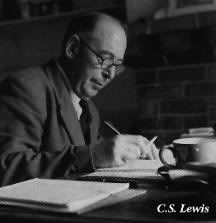Discipline and Routine
 A selection today from C.S. Lewis At The Breakfast Table:
A selection today from C.S. Lewis At The Breakfast Table:I think that discipline, one of the keynotes of Lewis's life, goes far to explain how he accomplished so much. His normal existence followed an extremely orderly pattern: early rising, chapel, Communion at least once a week, early breakfast, and then attendance to his huge correspondence that came from all over the world. In Cambridge he had no secretary and answered most of his letters in his own hand. If time allowed he would also write his lectures or books, or else read till lunchtime. Then the afternoon walk and tea, and then more work both before and after dinner. That was, I suppose, his ideal program but, like most great men, he never seemed to be in a hurry and always had time to see people who wanted to consult him. There were many of these, and often strangers, but they were hardly ever turned away.
He rarely referred to these visits and indeed rarely referred to his own affairs or to ours. He seemed, in a sense, to lead a curiously detached life, even when undergoing mental or physical agony. When he learned that his wife was suffering from her deadly illness, he did not mention it at first. I heard of it myself in a rather untypical way. He was looking unusually strained one evening after dinner, and I ventured to ask if he were tired. He replied very suddenly: "I am in great mental agony. Please pray for us." and then was silent. It was some time later that he told me why he asked for my prayers.
~Richard W. Ladborough, C.S. Lewis at the Breakfast Table, "In Cambridge", (1979)




0 Comment(s):
Post a Comment
<< Home